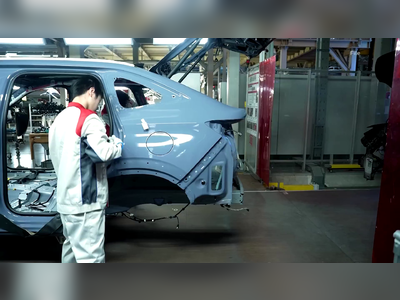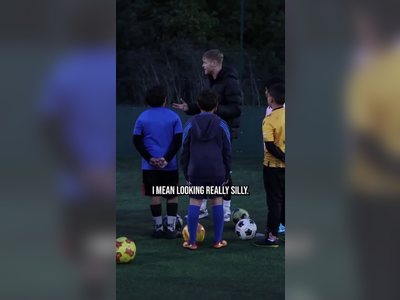Rising Concerns Over Unmonitored Internet Access for Children in the European Union
A significant majority of EU citizens highlight the dangers of uncontrolled internet use among children, prompting calls for stronger regulatory actions.
A recent survey revealed that nearly 95% of citizens in the European Union believe that children spend excessive time on social networks, which they feel can lead to addiction.
Furthermore, 91% of respondents emphasized the need for stronger actions by the EU to protect younger populations, as reported by Biljana Borzan, a Croatian Member of the European Parliament.
The study indicates that most parents with children believe their offspring spend up to three hours online daily, with the European average reported to be one hour more.
A majority of children possess mobile phones, with 11% of preschoolers reported to have access.
The survey found that 20% of parents utilize options to limit content, while 66% personally monitor what their children view online.
Moreover, 74.2% of respondents attributed a record number of children not enrolling in the first grade to screen time.
Experts cite issues such as psychological readiness, underdeveloped motor skills, and a lack of language abilities as causes for these delays.
During the previous parliamentary term, legislation known as the Digital Services Act prohibited harmful content for minors and restricted the tracking of minors on social networks for advertising purposes.
This legislation increased the responsibility of internet companies to verify the ages of users and led to several investigations against major platforms like Meta and TikTok initiated by the European Commission.
In the European Parliament, there are calls for further measures to combat internet addiction, including a ban on specific design features such as infinite scrolling, auto-play, and penalties for inactivity.
The lawmakers aim to prohibit the promotion of harmful features and ensure that video games do not foster addiction.
Research indicates that 40% of children under the age of 12 do not recognize influencer content as advertising.
There is a consensus that the internet needs to become a safer and more transparent space for young users.
Official European statistics highlight that 59% of the EU population engages with social networks such as Facebook, X (formerly Twitter), Instagram, Snapchat, and TikTok.
In the past year, over half of the population created a user profile, posted messages, or engaged in other activities on these platforms.
In the region of Southeast Europe, data shows that the percentage of social media users in Serbia reached 70.3%, with a higher percentage in the northern part of the country (73.2%) compared to the south (67.3%).
According to Eurostat, Slovenia reports 63.4% of its citizens participating in social networks, while Croatia stands at 62.7%.
Denmark leads the EU with the highest social media participation rates at 91%, followed by Cyprus at 83% and Hungary at 81%.
France, Germany, and Italy reported the lowest engagement rates at 44%, 49%, and 53%, respectively.
In addition, the National Platform for the Prevention and Safety of Children on the Internet reports a growing number of children and youth using the internet daily, both globally and within the region.
They emphasize that the internet is an uncensored source of information that is not always appropriate for children, potentially exposing them to harmful content, including advocacy for violence, explicit materials, or encouragement of inappropriate behavior.
Apart from safety concerns, there is an increasing issue of excessive internet use, which can lead to internet and gaming addiction.
European research conducted in 2019 noted that children are among the most significant internet users in Serbia, with 86% reportedly using the internet daily.
Two-thirds of children aged 9 to 10 years, alongside 98% of respondents aged 15 to 17, access the internet every day via smartphones.
Reports suggest that 45% of children aged 9 to 11 in Serbia utilize social networks daily, compared to just 11% in Germany.
Furthermore, 91% of respondents emphasized the need for stronger actions by the EU to protect younger populations, as reported by Biljana Borzan, a Croatian Member of the European Parliament.
The study indicates that most parents with children believe their offspring spend up to three hours online daily, with the European average reported to be one hour more.
A majority of children possess mobile phones, with 11% of preschoolers reported to have access.
The survey found that 20% of parents utilize options to limit content, while 66% personally monitor what their children view online.
Moreover, 74.2% of respondents attributed a record number of children not enrolling in the first grade to screen time.
Experts cite issues such as psychological readiness, underdeveloped motor skills, and a lack of language abilities as causes for these delays.
During the previous parliamentary term, legislation known as the Digital Services Act prohibited harmful content for minors and restricted the tracking of minors on social networks for advertising purposes.
This legislation increased the responsibility of internet companies to verify the ages of users and led to several investigations against major platforms like Meta and TikTok initiated by the European Commission.
In the European Parliament, there are calls for further measures to combat internet addiction, including a ban on specific design features such as infinite scrolling, auto-play, and penalties for inactivity.
The lawmakers aim to prohibit the promotion of harmful features and ensure that video games do not foster addiction.
Research indicates that 40% of children under the age of 12 do not recognize influencer content as advertising.
There is a consensus that the internet needs to become a safer and more transparent space for young users.
Official European statistics highlight that 59% of the EU population engages with social networks such as Facebook, X (formerly Twitter), Instagram, Snapchat, and TikTok.
In the past year, over half of the population created a user profile, posted messages, or engaged in other activities on these platforms.
In the region of Southeast Europe, data shows that the percentage of social media users in Serbia reached 70.3%, with a higher percentage in the northern part of the country (73.2%) compared to the south (67.3%).
According to Eurostat, Slovenia reports 63.4% of its citizens participating in social networks, while Croatia stands at 62.7%.
Denmark leads the EU with the highest social media participation rates at 91%, followed by Cyprus at 83% and Hungary at 81%.
France, Germany, and Italy reported the lowest engagement rates at 44%, 49%, and 53%, respectively.
In addition, the National Platform for the Prevention and Safety of Children on the Internet reports a growing number of children and youth using the internet daily, both globally and within the region.
They emphasize that the internet is an uncensored source of information that is not always appropriate for children, potentially exposing them to harmful content, including advocacy for violence, explicit materials, or encouragement of inappropriate behavior.
Apart from safety concerns, there is an increasing issue of excessive internet use, which can lead to internet and gaming addiction.
European research conducted in 2019 noted that children are among the most significant internet users in Serbia, with 86% reportedly using the internet daily.
Two-thirds of children aged 9 to 10 years, alongside 98% of respondents aged 15 to 17, access the internet every day via smartphones.
Reports suggest that 45% of children aged 9 to 11 in Serbia utilize social networks daily, compared to just 11% in Germany.
AI Disclaimer: An advanced artificial intelligence (AI) system generated the content of this page on its own. This innovative technology conducts extensive research from a variety of reliable sources, performs rigorous fact-checking and verification, cleans up and balances biased or manipulated content, and presents a minimal factual summary that is just enough yet essential for you to function as an informed and educated citizen. Please keep in mind, however, that this system is an evolving technology, and as a result, the article may contain accidental inaccuracies or errors. We urge you to help us improve our site by reporting any inaccuracies you find using the "Contact Us" link at the bottom of this page. Your helpful feedback helps us improve our system and deliver more precise content. When you find an article of interest here, please look for the full and extensive coverage of this topic in traditional news sources, as they are written by professional journalists that we try to support, not replace. We appreciate your understanding and assistance.










